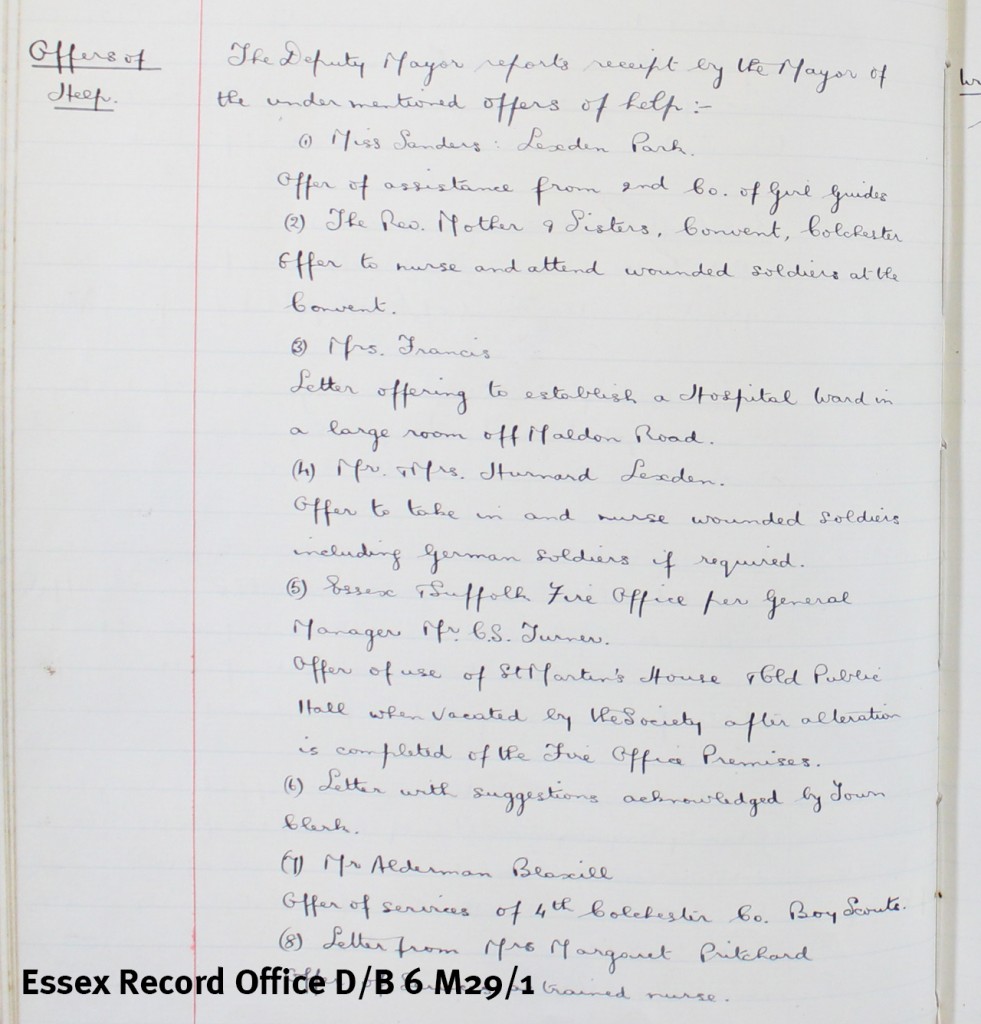Each month a document is put on display in our Searchroom. Our document for July has been chosen by Archivist Katharine Schofield to look at first responses in Essex to the outbreak of the First World War in August 1914.
D/B 6 M29/1
The Great War began on 4 August 1914, one hundred years ago this month. On the eve of war, the Foreign Secretary Sir Edward Grey reportedly said, ‘The lamps are going out all over Europe, we shall not see them lit again in our life time’. On 4 August Germany invaded Belgium as part of the Schlieffen Plan to capture Paris quickly by attacking through neutral countries. As one of the guarantors of Belgian neutrality under the Treaty of London in 1839, Britain declared war on Germany.
The most pressing need was to bring the army up to strength, and the Reserves were called up immediately, often causing hardship to their families who were dependent on their wages. As representatives of a garrison town the governing body of Colchester were particularly aware of the possible difficulties and on 5 August set up a committee ‘to consider what steps can be taken for alleviating the distress likely to be felt by the wives and families of men called on Active Service and of those losing their regular employment owing to dislocation of trade’.

One of the Committee’s resolutions at their first meeting on 5 August, the day after war was declared, was to ask the Mayor to issue a handbill asking people not to panic buy
On 7 August the Prince of Wales appealed in The Times for money to establish a national fund to relieve distress among the families of reservists. By midnight £250,000 had been raised and within a week £1 million. On 10 August Colchester voted to make their committee the Colchester Branch of the National Relief Fund.
The minutes for 10 August record offers of help from local residents. These ranged from making clothes, the services of the Boy Scouts and Girl Guides, to nursing by the local Convent and a number of ladies, including of German soldiers if required. Mrs Francis offered to establish a ward in a large room off Maldon Road, the local MP placed at the disposal of the Committee 200 duck, and a list of workmen discharged ‘on account of slackness of trade’ was to be compiled.

Offers of help from residents in Colchester received by 10 August 1914, including the services of the 4th Colchester Boy Scouts and the 2nd Colchester Girl Guides
The minute book will be on display in the Searchroom throughout August.
If you would like to find out more about First World War records at ERO, join us at our next Discover: First World War records at ERO workshop on 6 August 2014. This workshop talks you through some of the fascinating wartime records that we hold here, and also looks at how to research names on local war memorials, or to trace your First World War Ancestors. Tickets are £10 and can be booked by telephoning 01245 244644.
